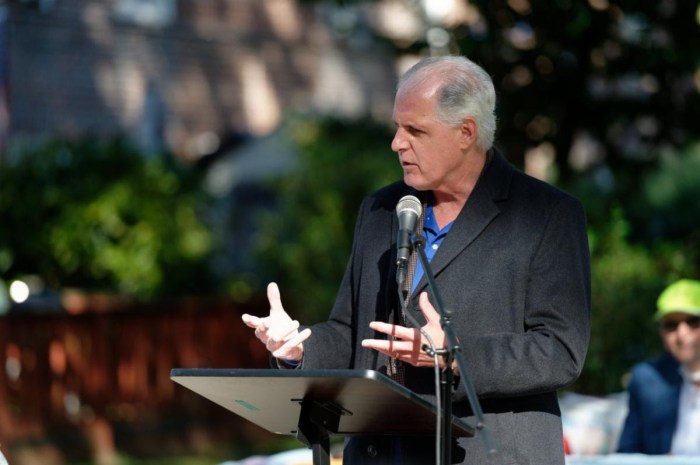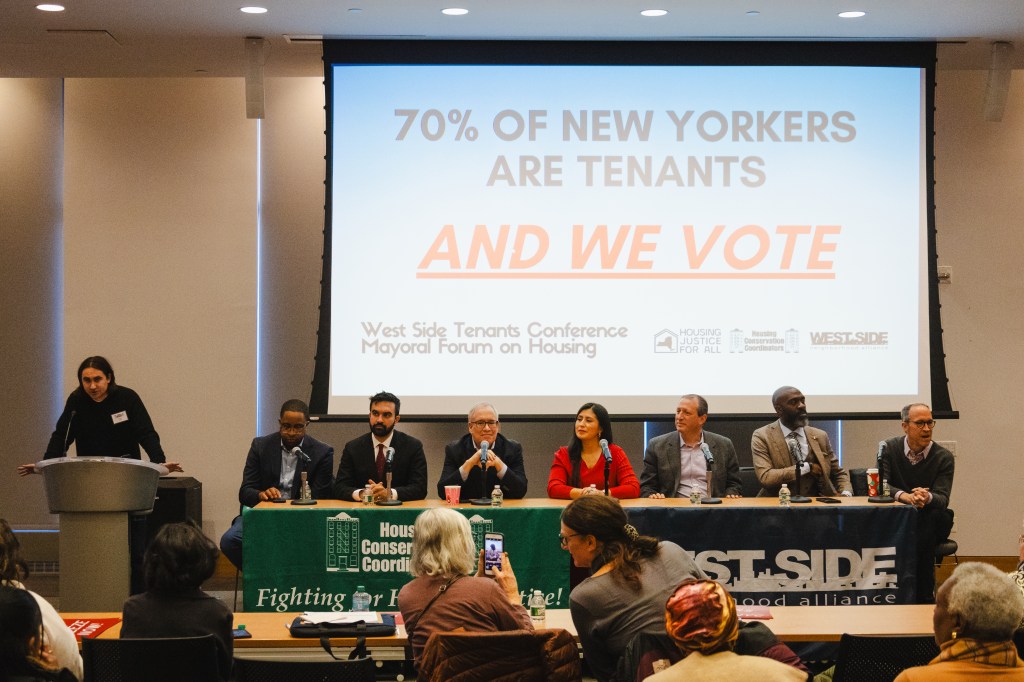By TimesLedger Staff
The U.S. Supreme Court upheld nearly all of President Barack Obama’s controversial Affordable Health Care Act Thursday morning, giving the Democratic Party and its representatives from Queens a reason to celebrate. But the decision worried business owners in the western part of the borough, which is fast becoming a hub for entrepreneurship.
“We worked to put an end to runaway premium increases and arbitrary coverage denials, to improve and strengthen Medicare, and to create options for individuals and small businesses to purchase quality and affordable insurance,” said U.S. Rep. Joseph Crowley (D-Jackson Heights), who heads the Queens County Democrats. “I am pleased that today, our hard work was validated.”
But the borough’s lone Republican congressman, U.S. Rep. Bob Turner (R-Middle Village), did not share Crowley’s elation.
“Congress has already found many mandates in Obamacare that would hurt small businesses and kill jobs,” he said in a statement. “Several more taxes and burdensome regulations on small businesses are set to go into effect in the next two years. Congress must now rededicate itself to repealing Obamacare and replacing it with common-sense proposals that will lower health care costs for all Americans.”
The court ruled 5-4 to uphold the measure in a majority decision that included the conservative Chief Justice John Roberts Jr.
Obama’s individual mandate, the requirement that every American meeting certain income levels purchase insurance, was the thorniest portion of the law and the source of much contention from conservatives.
But the mandate, along with nearly all of the law, except for a provision that required states to expand Medicaid programs, seemed to survive the court’s scrutiny, although the 193-page decision will be pored over in the coming days.
The president’s health-care measure will have a profound effect on the 1 million New Yorkers who are currently uninsured, according to City Comptroller John Liu.
“New Yorkers will now benefit from increased access to primary and preventive care, added help in finding and using insurance coverage, and an overall focus on spending our health-care dollars more wisely,” Liu said.
But the mood was decidedly different in portions of Astoria and Long Island City, which has become a hot spot for fledging businesses and is envisioned as the promise land for start-up companies set to spin off ventures from an ambitious tech campus headed to Roosevelt Island.
The Queens Economic Development Corp. runs a business incubator called the Entrepreneur Space, where about 160 clients collectively rent kitchen equipment to cut down on startup capital and overhead costs to get their businesses going.
“I worry that these owners are going to be reluctant to hire staff due to new insurance requirements under Obamacare,” said Rob MacKay, spokesman for the corporation.
But since the ruling is so new, he said it is still unclear how it will affect fragile business operations in the borough, some of which could actually use the decision to their advantage.
“However, some entrepreneurs will probably find a niche within Obamacare and create new businesses,” he said. “Basically, we are heading into unchartered waters, and that’s both exciting and nerve-wracking.”
And the startups that many hope will populate the office buildings of Long Island City once Cornell’s tech campus is built could do without extra regulations, according to Jukay Hsu of Coalition for Queens, a nonprofit that promotes economic growth in the technology sector.
Hsu did not have time to digest the ruling and could not speak specifically about how it would affect western Queens, but said in general more red tape is bad for small business.
“I think less requirements and restrictions for startups are better,” he said. “Putting additional regulations on small businesses might make it tougher to start companies.” But the ruling might not have any impact on those businesses at all, he said since small tech companies typically offer excellent health care to their employees.
“Even without this ruling and government intervention, this is already provided by tech startups to their employees,” he said, pointing out that tech companies’ primary assets are their people.
In addition, health care is one of the most rapidly growing fields for new businesses, something that western Queens could capitalize on.
“Ultimately, innovation will make health care more efficient and affordable,” said Hsu, who added that tech startups are the perfect businesses to provide that innovation.
Reach reporter Joe Anuta by e-mail at januta@cnglocal.com or by phone at 718-260-4566.



































